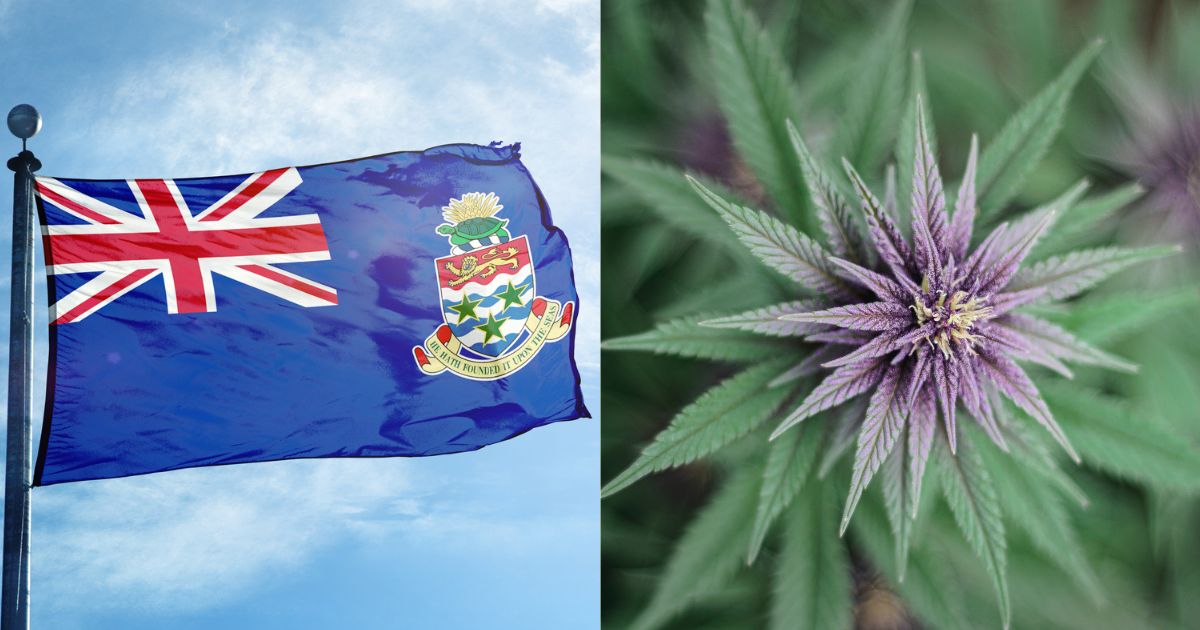The Cayman Islands, a British Overseas Territory known for its tropical beauty and financial prowess, has taken a step forward by voting in favor of the decriminalization of small amounts of cannabis during the 2025 General Election and referendum. With a majority of 55% of voters endorsing, this decision reflects the evolving perspectives on cannabis use and its place globally and now within Caymanian society.
Decision on Cannabis Decriminalization in the Cayman Islands
The referendum did not legalize cannabis use or its distribution as first reported by Marijuana Moment. Instead, it focused on removing criminal penalties for the consumption and possession of small amounts of the substance. Under this policy, residents found with amounts defined as “personal use” (proposed to be under 10 grams) will avoid receiving criminal records. However, penalties, such as fines akin to traffic violations, would still be imposed in an attempt to discourage misuse while steering clear of harsh criminal consequences.
This motion’s passage differs fundamentally from legalization, which would involve creating a regulated market for cultivation and sale. By maintaining a distinction between decriminalization and legalization, the Cayman Islands government reiterates that cannabis will remain illegal under the law, with a focus on reducing the severity of punitive measures.
Why Caymanians Said Yes, and Counterarguments and Concerns
Support for the decriminalization of small amounts of cannabis stems from a combination of social justice, public health, and pragmatic concerns. One of the central arguments favoring this shift was to prevent individuals from being burdened with criminal records for minor offenses, which could disrupt their access to employment, education, and travel opportunities.
Opponents of current criminal penalties have stressed that current policies disproportionately affect lower-income populations and younger individuals, intensifying economic burdens on these communities. Decriminalizing cannabis aims to reduce the long-term negative impacts of criminal records while allowing law enforcement to prioritize more pressing issues, like we’ve seen here in the United States with the failed War on Drugs.
A prominent voice in support of the referendum, psychiatrist Marc Lockhart, via the Cayman Compass, talked about the need to address public stigma around cannabis. He explained that many individuals currently avoid seeking treatment for substance dependence out of fear of social consequences and legal repercussions. Removing criminal penalties for personal use, Lockhart noted, could foster a healthier environment for addressing these challenges within the healthcare system.
Despite the majority vote, reservations persist among segments of the local population. Critics argue that this policy could unintentionally normalize cannabis use among Caymanian youth, potentially leading to increased consumption and associated risks. There are also worries that the move might indirectly pave the way for discussions of full legalization, which some feel could alter the social fabric of the islands.
The unknown specifics of the policy, such as the exact penalties and methods of enforcement for decriminalized possession, remain a sticking point. Critics insist that clearer guidelines will be necessary to avoid unintended loopholes and ensure public trust in the system.
Broader Implications
The Cayman Islands’ vote fits into a global narrative of rethinking punitive drug laws. Across the Caribbean, leaders and policymakers are actively reconsidering the criminalization of cannabis, touching on themes of human rights, economic opportunities, and public health.
Neighboring jurisdictions like Jamaica have also moved toward cannabis-friendly policies, blending decriminalization measures with efforts to promote local economic development through regulated cultivation and export. Observers foresee potential economic benefits should the Cayman Islands eventually decide to follow suit, leveraging their reputation as a tourist-friendly destination to explore cannabis tourism, medical cannabis exports, or other related ventures. You can also check out the weed culture in Jamaica with our recent series here at Beard Bros in collaboration with Synergy Studios and JM Balbuena, called “Jamaica Normalization Island.”
At this stage, the referendum functions as a barometer of public sentiment rather than binding legislation. The Cayman government will need to draft and approve detailed regulations to shape how its decriminalization policy unfolds. This process will likely involve consultations with public health professionals, law enforcement agencies, and community leaders to ensure a balanced approach that minimizes risks and maximizes the benefits of the reform.
Intersection of Medical Cannabis and Stigma Reduction in the Cayman Islands
It is worth noting that the Cayman Islands legalized medical marijuana in 2017, primarily for individuals suffering from chronic pain, nerve damage, and other debilitating health conditions. Supporters of larger decriminalization hope this newer policy will further destigmatize cannabis and its medical benefits, creating pathways for more individuals to explore its therapeutic potential without fear of legal repercussions.
Among cannabis advocates, decriminalization is often seen as a stepping stone toward advancing public education about the substance. With medical marijuana programs already in place, some residents feel optimistic that this progressive change complements efforts to destigmatize cannabis while carefully managing its introduction into the mainstream.
For now, decriminalization offers a measured step forward. By maintaining cannabis’s illegal status yet revising penal codes, the government retains oversight of how cannabis impacts its communities without rushing into unregulated changes. However, future decisions on this matter will require clear communication, thorough consultation, and well-crafted legislation to ensure they serve the best interests of Cayman’s residents.
A Measured Move Toward Modern Drug Policy
Cayman Islands voters showed a readiness to re-examine longstanding policies related to cannabis through their majority endorsement of decriminalization. Though this change stops short of legalizing cannabis or opening a commercial market, it signifies a thoughtful step toward aligning local drug policy with global trends and contemporary attitudes.
For Cayman residents, this decision represents progress in attacking key social and economic challenges surrounding drug offenses. By removing criminal stigmas attached to minor cannabis possession, the islands can foster a more logical approach to enforcement and encourage healthier public dialogue around substance use.




















